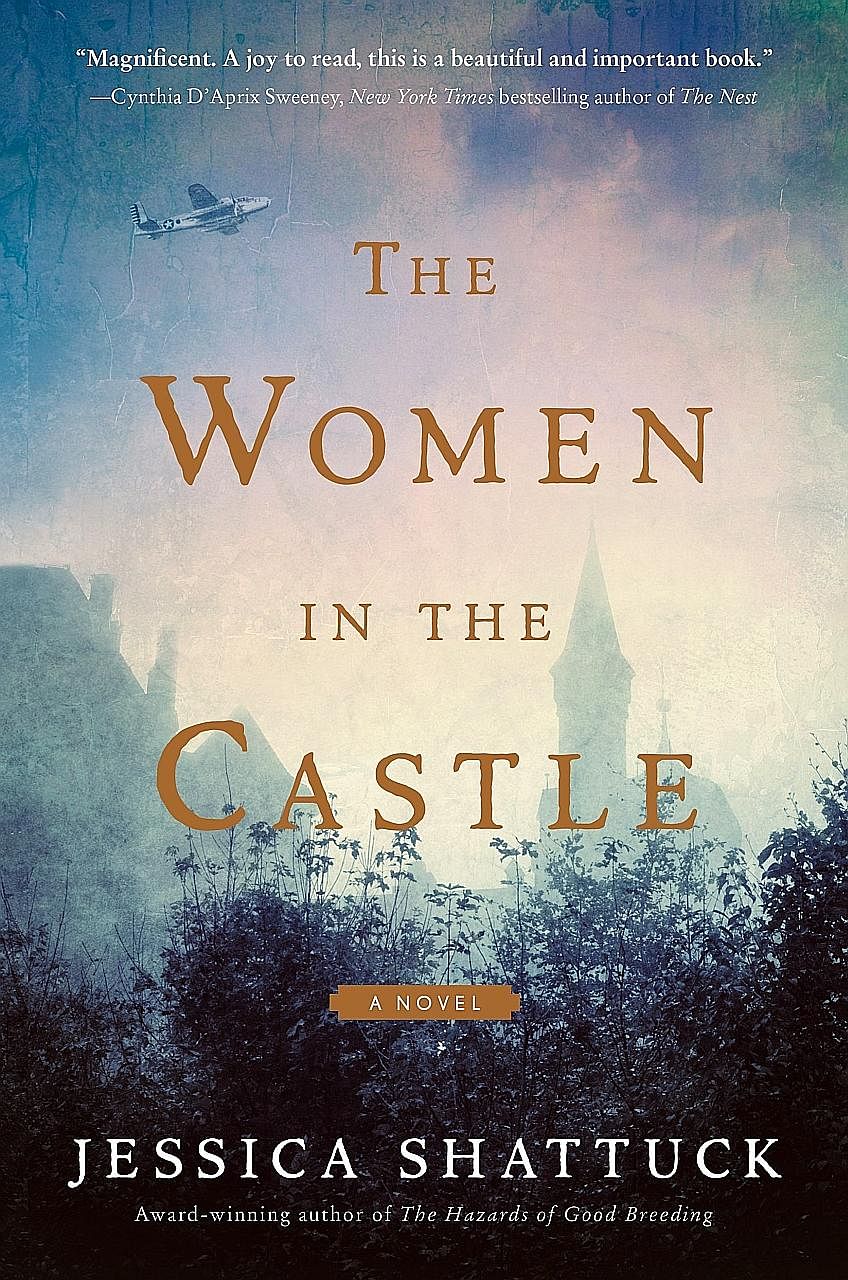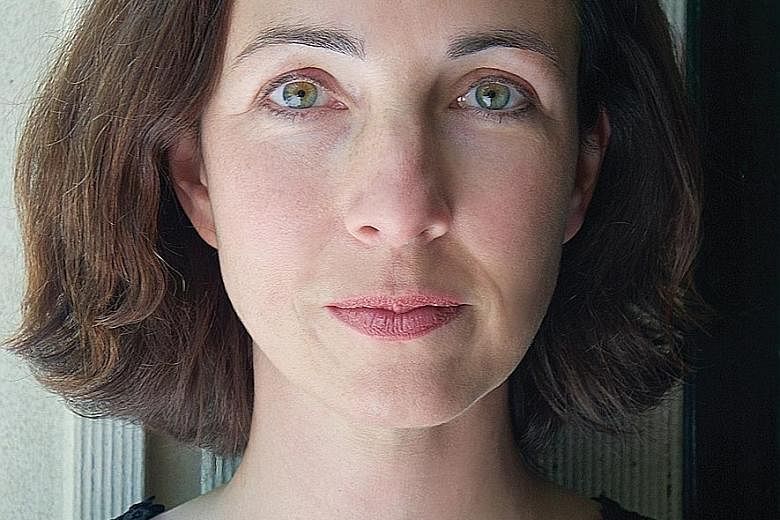HISTORICAL FICTION
THE WOMEN IN THE CASTLE
By Jessica Shattuck William Morrow/Paperback/ 353 pages/$32.10/Books Kinokuniya/3.5/5 stars
It is clear that World War II is a topic that resonates with American author Jessica Shattuck, who credits her late grandmother as an inspiration for her new novel that has been seven years in the making.
In fact, she wrote an opinion piece in The New York Times in March on her struggles to come to terms with the fact that her grandparents, who grew up among the working class in Dortmund, were Nazis during the war.
She wrote of her grandmother: "Understanding why and how this woman I knew and loved was swept up in a movement that became synonymous with evil has been, for me, a lifelong question.

"'Didn't you hear what Hitler was saying?' I would ask, grappling with the moral paradox of a loving grandmother who had been a Nazi."
Such murky moral dilemmas form the basis of The Women In The Castle, Shattuck's third novel and her first foray into historical fiction after two contemporary titles.
It is brilliantly researched and her prose is so evocative that it will transport the reader back to a time when Germany was coming to terms with its defeat, complicity and grief as it rebuilt itself from the ashes of the war.
The tale centres on three women, with the matriarch of the titular Bavarian castle being Marianne, who, at a glitzy party before the outbreak of war, is entrusted with the responsibility of "commander of wives and children". This, as their husbands form part of a covert resistance movement that was plotting to assassinate Adolf Hitler.
They fail in their plot and, after the war, Marianne sees it as her duty to travel across the country, combing children's homes and displaced-people camps to seek out the widows and their children.
All of them resettle in the castle, now a shadow of its halcyon days. Given Marianne's self-righteousness and refusal to see beyond black and white, conflict would eventually erupt as she finds out the secrets that her compatriots have been hiding from her.
She is sanctimonious when Benita - who has long been politically apathetic - wants to remarry a former Nazi, now running a casket company and is a single father to a teenage girl. She is also aghast when she discovers that the otherwise resourceful and trustworthy Ania was unwittingly swept up in the Nazi movement, regardless of how small a role she played.
These present unsettling questions and the reader will begin to question their moral compass, wondering what they would have done if caught in that situation.
For one thing, how much blame should be placed on ordinary folks, who, perhaps in the name of blind faith, carried out orders at the behest of their commanders?
Shattuck's exquisite prose sings: "She saw the histories of the people passing by like X-rays stamped on their faces - ugly, mutinous tracings of dark and light: a woman who had ratted out a neighbour, a man who had shot children, a soldier who had held his dying friend in his arms. Yet here they were, carrying groceries, holding children's hands, turning their collars up against the wind."
But the book is ultimately bogged down by its plodding pace and Marianne's single-minded virtuosity, to the extent of alienating her only friends, comes across as rather one-dimensional, if not grating.
The irony is stark: Insurmountable obstacles may bring people together, but such emotional binds may yet be torn asunder during a time of peace.
If you like this, read: The Nightingale by Kristin Hannah (2015, Pan Macmillan, $18.95, Books Kinokuniya). A haunting novel, set in war- torn France, about two sisters who grow estranged when they disagree on the threat of occupation.


